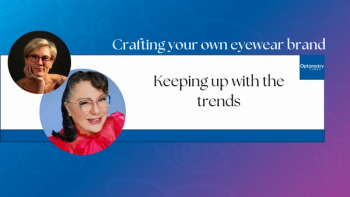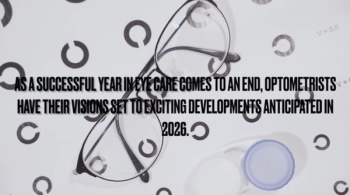
Eye doctor uses magic to teach valuable business lessons
Dr. Sterling’s speaking career began as a coincidence roughly 15 years ago. After he performed illusions for company banquets, businesses started asking him to incorporate their new product, service, or promotion into his presentation. So rather than simply entertain employees with magical illusions, he began using his magic skills a way to deliver a key business message: people’s narrow perspectives often limit their abilities and opportunities to creatively solve problems, both at work and in their personal life.
As a practicing optometrist and illusionist in Lancaster, PA, Jay Sterling, OD-his stage name-knows all about the difference between clear vision and perception. For the past 15 years, his business presentations have taught employees the difference, which in turn, helps them think more creatively when solving daily business challenges.
Dr. Sterling uses illusions to help expand people's perspectives to help them creatively solve problems
“Most of us accept the way our vision functions on a day-to-day basis,” Dr. Sterling said, adding that a firm that markets his speaking engagements prefers he doesn’t release his real last name. “But so much of what we see is distorted. By helping people see how their eyes can deceive them, we can help them make better decisions in business or in their personal life, reach beyond their comfort zones, and do things they normally wouldn’t think of doing.”
Dr. Sterling’s speaking career began as a coincidence roughly 15 years ago. After he performed illusions for company banquets, businesses started asking him to incorporate their new product, service, or promotion into his presentation. So rather than simply entertain employees with magical illusions, he began using his magic skills a way to deliver a key business message: people’s narrow perspectives often limit their abilities and opportunities to creatively solve problems, both at work and in their personal life.
Seeing differently
One common exercise in his hour-long presentations includes a 3 x 5 index card. He asks participants to tear a small hole in the middle of the card so they can put their finger through it. He later asks them to enlarge the hole so they can stick their hand through it. Easy enough. But then he asks them to tear a hole large enough to put their head through it.
Most people laugh or look at him in disbelief, he said. Their perception is that it’s an impossible task. It simply can’t be done. Then he proves them wrong.
“What happens is our eyes see the perimeter of the paper and see that tearing a hole that large is impossible,” he said, adding that readers will have to attend his presentation to learn how this challenge is accomplished. “But there’s actually a very easy way to do it just by changing your perspective, which makes the process easier to understand and do.”
Since then, he has performed several times each month for hundreds of companies, mostly in the United States, but as far away as Shanghai, China; Dubai, United Arab Emirates; and Cape Town, South Africa.
Throughout his presentation, he incorporates business props, such as money, laptops, or cell phones, into his illusions. For example, he’ll make a cell phone vanish from one spot, then reappear later in another to illustrate how perception can cloud a person’s creative ability and judgment when tackling business concerns.
Your eyes can deceive you. Dr. Sterling helps you see more clearly.
Beyond PowerPoint
Over the years, employees weren’t the only ones learning. Dr. Sterling also created his own bag of tricks on how to become a successful public speaker. His top five tips include:
- Develop a niche presentation with global appeal. The deeper the niche, the more universal the message, the better. His presentations address a common business challenge-encouraging employees to think outside the box when solving problems.
- Entertain, don’t just inform. “People become bored with PowerPoint,” he said. “Incorporate anything that offers entertainment value. Doing something interactive is much more powerful in today’s market.”
- Offer experiences that participants can relate to and immediately apply at work when they return to their offices.
- Hire a marketing company to represent you. It’s typically easier for somebody else to promote you than to promote yourself. Dr. Sterling, who is represented by several different marketing firms, said a professional speaker typically earns upwards of $3,000 per engagement.
- Publish a book on your presentation’s topic. Dr. Sterling published his first book titled, The Other Side of Vision (Advantage Media, 2009). “Your book can be your quintessential business card,” he said, adding that a book lends credibility and better positions you as an expert on that topic.
Then don’t forget to follow your own advice. Dr. Sterling routinely expands his perspective or “gives himself new eyes.” When traveling, he often mystery shops other optometry practices. His office encourages anonymous suggestions from staff about practice management ideas. Every now and then, he also acts like a patient by lingering in his own waiting area to observe patient-staff interactions.
“It seems like everyone is always looking for the newest, latest concept in improving themselves or their business,” he said. “But rather than searching for new landscapes, you may simply need new eyes.”ODT
Newsletter
Want more insights like this? Subscribe to Optometry Times and get clinical pearls and practice tips delivered straight to your inbox.









































